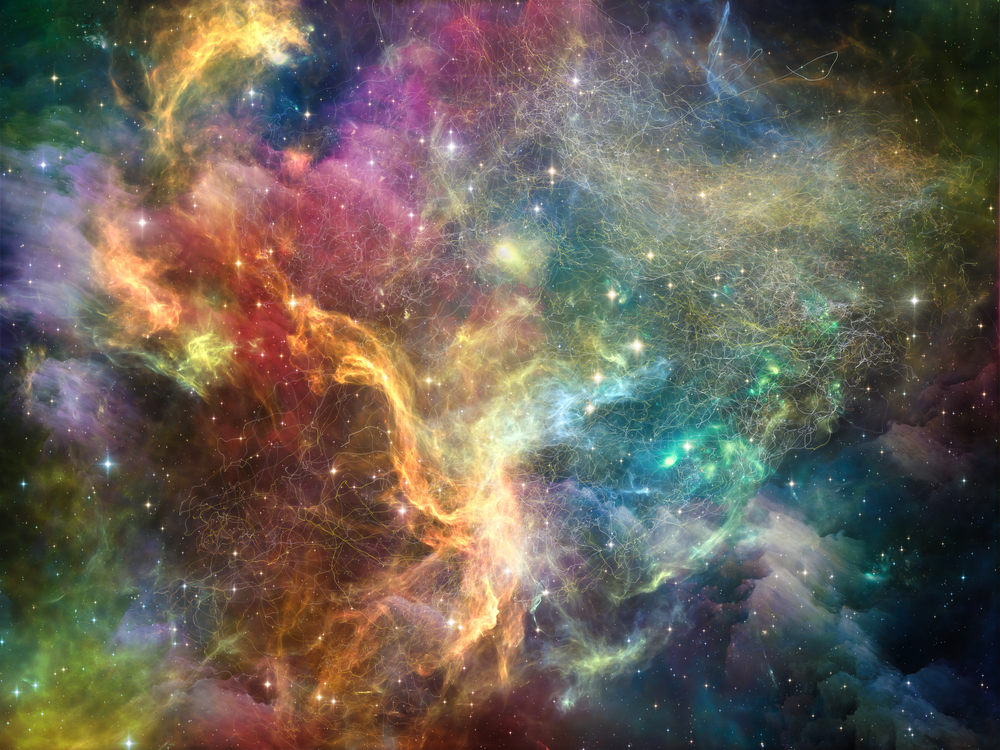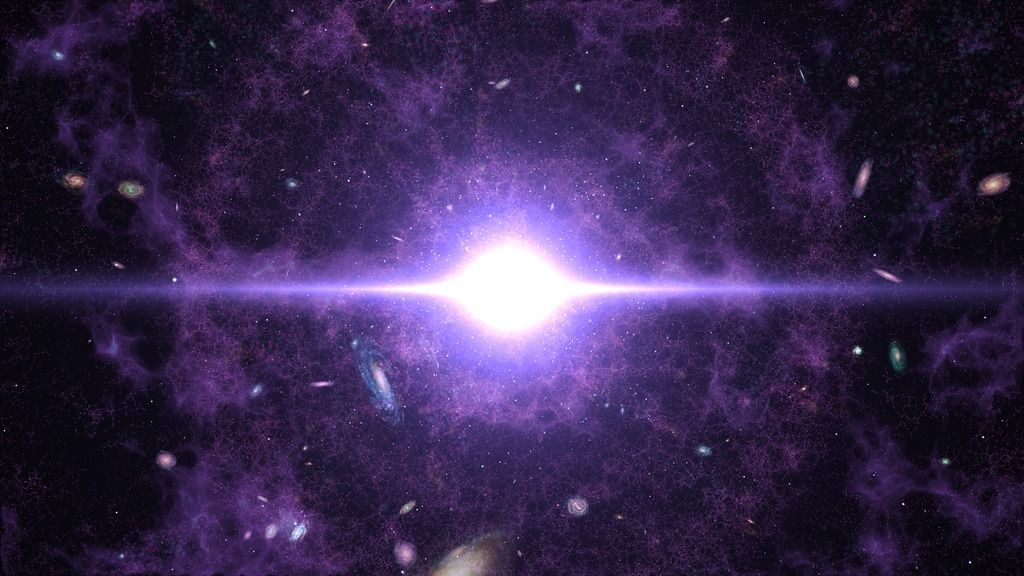It is certainly a strange and mind-boggling concept to think that the universe had a beginning some 13.8 billion years ago. This idea can be somewhat reminiscent of religious narratives that describe the creation of the cosmos through divine intervention. However, it is important to note that science cannot provide any evidence for or against such beliefs.
The Big Bang theory, which describes the birth of the universe, is the prevailing scientific explanation for this event. It is based on a vast amount of observational and theoretical evidence, and has been subject to rigorous testing and scrutiny by the scientific community. While it may be difficult to grasp the idea of a universe that had a beginning, the evidence strongly supports this theory.
Overall, it is important to recognize that science and religion are two different realms that address different questions and use different methods of inquiry. While the Big Bang theory may seem strange and unfamiliar, it is a scientific explanation that has been supported by evidence and has greatly expanded our understanding of the universe.

What happened before time began?
The question of what happened before the Big Bang is a challenging one that has puzzled scientists and philosophers for many years. However, it is important to recognize that this question may be somewhat meaningless, as time itself had a beginning with the Big Bang. This is different from the concept of eternal gods, which exist outside of time.
Asking science to explain the First Cause is like asking for a scientific model that uses no precedents or previous concepts to operate, which is impossible. However, scientists can try to reconstruct the early universe by identifying material remnants of long-ago days and using them to learn about the different physics that were prevalent then.
The current understanding is that the universe is expanding, and this expansion means that the distances between galaxies are increasing, with galaxies receding from one another at a rate that depends on the kinds of stuff that fill up space. By studying this expansion and the remnants of the early universe, scientists can gain insights into the structure and history of the universe.
Overall, the question of what happened before the Big Bang may remain a mystery, but scientific inquiry can still provide valuable insights into the origins and evolution of the universe.

Attributing the beginning of everything to the Big Bang begs the question, “What happened before that?” That’s a different question when we are dealing with eternal gods, as for them, timelessness is not an issue. They exist outside of time, but we don’t. For us, there is no “before” time. Thus, if you ask what was going on before the Big Bang, the question is somewhat meaningless, even if we need it to make sense. Stephen Hawking once equated it with asking, “What’s north of the North Pole?” Or, the way I like to phrase it, “Who were you before you were born?”
To ask from science to “explain” the First Cause is to ask science to explain its own structure. It’s to ask for a scientific model that uses no precedents, no previous concepts to operate. And science can’t do this, just as you can’t think without a brain.
Saint Augustine posited that time and space emerged with creation. For him, it was an act of God, of course. But for science?
Scientifically, we try to figure out the way the universe was in its adolescence and infancy by going backward in time, trying to reconstruct what was happening. Somewhat like paleontologists, we identify “fossils” — material remnants of long-ago days — and use them to learn about the different physics that was prevalent then.
The premise is that we are confident that the universe is expanding now and has been for billions of years. “Expansion” here means that the distances between galaxies are increasing; galaxies are receding from one another at a rate that depends on what was inside the universe at different eras, that is, the kinds of stuff that fill up space.
The “Big Bang” was not an explosion
You are correct. The term “Big Bang” is somewhat misleading, as it implies a sudden explosion that started everything. In reality, the universe did not explode from a single point, but rather expanded and stretched out from a singularity, a point of infinite density and temperature. As the universe expanded, it cooled and allowed for the formation of matter and eventually the formation of galaxies.
The expansion of the universe is not like an explosion sending pieces of shrapnel flying in all directions, but rather like the stretching of space itself. Galaxies are carried along with the stretch of space, much like corks floating down a river. Every point in the universe is equally important, and the expansion is democratic, meaning that someone in a faraway galaxy would see other galaxies moving away from them just like we do.
The concept of the Big Bang and the expansion of the universe can be difficult to grasp, but it is important to understand that it is not an explosion in the traditional sense. The expansion of the universe is a fundamental aspect of its structure and history, and the study of this expansion has greatly expanded our understanding of the universe as a whole.
(Side note: For galaxies that are close enough to us, there are deviations from this cosmic flow, what’s called “local motion.” This is due to gravity, The Andromeda galaxy is moving toward us, for example.)

Going back in time
As we trace the history of the universe backward in time, we see matter getting squeezed into a shrinking volume of space, and the temperature and pressure rise until molecules break apart into atoms, atoms into nuclei and electrons, and so on. Evidence for this history comes from the cosmic microwave background radiation and observations of the early universe, which provide clues about the formation of the first atoms and light atomic nuclei.
However, as we approach the moment of the Big Bang itself, our current theories, including Einstein’s general theory of relativity, fail to describe the physics of the universe. This is the realm of quantum mechanics, where distances are so small that space must be rethought as a granular environment rather than a continuous sheet. Unfortunately, there is currently no viable theory to describe the granularity of space or the physics of gravity at the quantum scale, although superstring theory and loop quantum gravity are contenders.
Despite our current limitations, scientists continue to push the boundaries of our understanding of the early universe. By extrapolating our current hypotheses and searching for signs of what was happening at earlier times and higher energies, we may one day gain a deeper understanding of the origins and evolution of the universe.
Quantum cosmology does not provide an answer.

You make an excellent point. While scientists continue to push the boundaries of our understanding of the early universe, there may be limits to what we can know and understand. The First Cause remains a mystery, and science cannot provide a complete explanation for it without relying on conceptual frameworks and laws that already exist.
While some may turn to religious faith for an answer, others may embrace the mystery with humility and recognize the limitations of our knowledge. It is important to appreciate what we have accomplished and will continue to accomplish, even if we may not be able to explain everything.
As you say, curiosity and mystery are intertwined, and it is this interplay that drives scientific inquiry and our quest to understand the universe.








